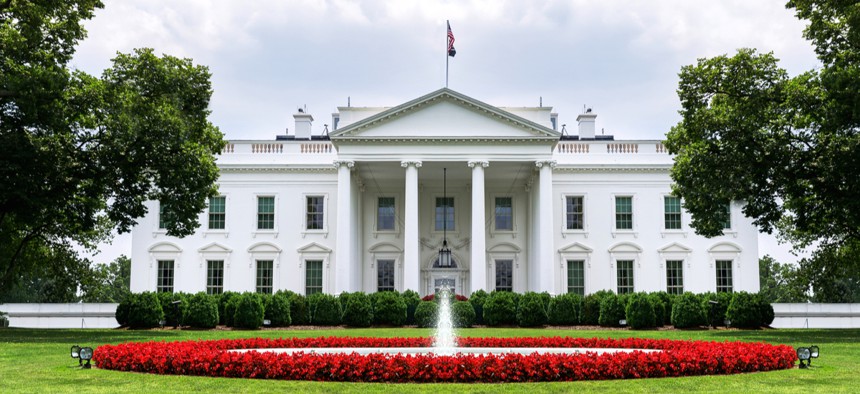Office of American Innovation on Keeping Modernization Apolitical

Luca Perra/Shutterstock.com
The office is turning its attention to finding secure identification systems.
Though the present political terrain can seem tribal and polarizing, the White House Office of American Innovation’s efforts to modernize federal operations and services have remained neutral, an official said last week.
“We’ve been in a political time for arguably a decade,” Matt Lira, special assistant to the president for innovation policy and initiatives, said at a Business Roundtable event on securing digital identity in Washington Wednesday. “I believe with increasing amounts of optimism that the modernization of our government has been preserved as something that is relatively apolitical.”
The Trump administration stood up OAI in early 2017 to act as a liaison between the administration and major tech and agency executives and stakeholders. While details around the office’s work and functions have been scant and sporadic, OAI informs the president with policy recommendations and aims to strengthen services and operations across the government. “A lot of people think, ‘What is the Office of American Innovation?’” Lira said. “And frankly, our objective is to choose or be assigned high priority projects for the country that have some sort of interagency mandate or that wouldn't necessarily be covered by any one particular stakeholder, and so some of those are in the technology space and some of those are in the broader policy areas.”
Lira explained that a few months after its founding, OAI held a summit at the White House inviting CEOs from many major tech companies to talk about government modernization. He said while there was much discussion around the substance of those conversations, something that is frequently “glossed over” is that the room was filled with people who very publicly supported the president’s candidacy, as well as many people who strongly opposed it.
“And my point is there is no political litmus test to their attendance and it takes a step of faith to issue the invite and it takes a step of faith for a person to accept the invite, and as a result of that and its continuance, the modernization efforts have remained apolitical, led by technical experts with the full support of the broader technology sector of the United States,” Lira said. “So I think that’s accomplishment one.”
Lira also highlighted some of the office’s other latest milestones.
He referenced some of its work with agencies that are producing results, including the Agriculture Department’s Centers of Excellence, which he said are delivering significant enterprise level progress. OAI is also supporting agencies’ recruitment of exceptional technical talent.
“Recruiting someone to give up the stock option possibility of a startup to come and work for the government—it's hard enough to steal people from Capitol Hill like me who might take a paycut, much less somebody who is coming from Silicon Valley,” he said.
Ahead of the event, Business Roundtable released a report that was a year in the making and includes an action plan to promote strong and resilient digital identity systems. Lira noted that OAI is often assigned to listen to what is being said by stakeholders in the broader economy from the private sector, academia and non-profits, and privacy and security around digital identities have recently become a hot-button topic across many of OAI and the administration’s discussions.
And it’s also something his office is placing a sharp focus on.
“I think there's a global equity in terms of an identity system that works for the United States, but that can also hopefully be a model for the world and a system that respects the privacy of our users and our organizations, while also enabling fantastic user experiences and economic opportunities in a secure way,” he said.
NEXT STORY: 'Mr. FedRAMP' leaving GSA






